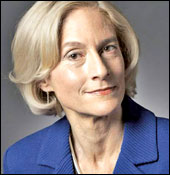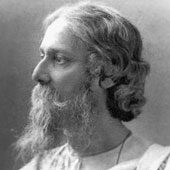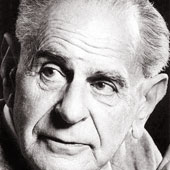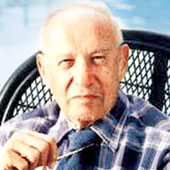Value of Humanities education
Dr Ruwantissa Abeyratne
The relevance of educating our children in the humanities is fast
receding, giving way to undue emphasis on economic literacy and business
education. Professor of Law and Ethics at the University of Chicago
Martha N Nussbaum, in her book ‘Not for Profit - Why Democracy Needs the
Humanities’ (Princeton University Press: 2010) states: The humanities
and arts play a central role in the history of democracy and yet today
many parents are ashamed of children who study literature or art.
|

Martha N Nussbaum |

Rabindranath Tagore |
|

Karl Popper |

Peter Drucker |
Literature and philosophy have changed the world, but parents all
over the world are more likely to fret if their children are financially
illiterate than if their training in the humanities is deficient.
These words echo the sage observation in 1917 of Nobel Laureate
Rabindranath Tagore who said: History has come to a stage when the moral
man is more and more giving way, almost without knowing it, to make room
for the commercial man, the man of limited purpose.
This process, aided by the wonderful progress in science, is assuming
gigantic proportion and power, causing the upset of mans moral balance,
obscuring his human side under the shadow of soulless organization.
Modern society
There are two issues in determining the value of these statements:
the first is, what is the contribution of the humanities to modern
society; and the second is, how do the humanities affect a modern
democracy. In this context, a modern democracy has to be defined.
As Karl Popper said in his book ‘The Open Society and Its Enemies’
published at the time of World War II, modern democracy is not about who
rules but is about how a State rules. In other words, the mechanism of
checks and balances is the crux of what separates a modern democracy
from a dictatorship. Therefore a modern democracy revolves round the
nature of State rule, which can be distilled into the most fundamental
concept of good leadership.
A good leader is one who influences the behaviour of other people
toward group goals in a way that fully respects their freedom. A
simplistic definition of leadership is that it is the art of motivating
a group of people to act towards achieving a common goal. Put even more
simply, a leader is the inspiration and director of the action.
He or she is the person in the group that possesses the combination
of personality and skills that makes others want to follow his or her
direction.
Peter Drucker, the Harvard management guru, defines a leader as
someone who has followers... and goes on to say to gain followers
requires influence. Warren Bennis is of the view that leadership is a
function of knowing yourself, having a vision that is well communicated,
building trust among colleagues, and taking effective action to realize
your own leadership potential. Kenneth Boulding says that good leaders
are made not born. If you have the desire and willpower, you can become
an effective leader. Good leaders develop through a never-ending process
of self-study, education, training and experience.
Value-systems
Political leadership involves all the above elements, but must, in
essence involve empathy, respect and understanding. A political leader
has also, according to Prem Misir, to combine two behaviourial styles
the first being empathy and concern relating to people, which includes
respecting people and developing mutual trust. The second is concern
with project-completion tasks.
|
Humanities |
* Play
central role in history of democracy
* Literature, philosophy changed world * Moral man giving way to
commercial man
* Leadership develops through education, training,
experience
* Questions social, political myopia
* Provide sound foundation for democracy |
Some studies have shown that leaders are effective when they combine
both behaviours. Misir states that political leaders have to not only
press the flesh but also be knowledgeable about issues and have the
capacity to resolve these issues.
A good leader can attenuate values from the humanities which bring to
a society the elements of empathy and concern and helps build respect
and mutual trust.
In this context Nussbaum refers to a greedy desire and aggression in
modern society that makes people veer from respect for democracy towards
economic success. She quotes Mahatma Gandhi who believed that mutual
respect and equality in people must essentially stem from
self-realization attained through an inner struggle by each person.
A major feature of humanities which brings to bear its incalculable
value is that humanities is the study of values in and of themselves.
Humanities pose a challenge for the skeptics to understand what is
often taken for granted, namely, the fundamental outreach and importance
of languages which bind people and societies together and literatures
and other narratives/texts, as well as philosophical and historical
considerations which incontrovertibly frame human consciousness and
intellectual activity.
Words and narratives have power, enable us to give meaning and are
rooted in culture, beliefs and value-systems. For example, democratic
achievements such as the abolition of slavery, universal suffrage for
women and the eradication of racial segregation and bigotry, which are
achievements of modern democracy, were begotten by a cohesive
articulation of values expressed through various texts including
fictional works, erudite essays, legal treatises and other uses of
rhetoric which eventually resulted in entire societies being convinced
of the need to change their beliefs and outworn fetishes and value
systems, purblind mental models, governance and modes of production.
Intellectual debate
Scholarship in humanities is achieved by approaching knowledge in a
certain way that juxtaposes a close interpretive examination of
languages, meanings, values, culture and aesthetics. Above all, the
humanities question social and political myopia using such media as
fiction, music, cinema, drama or intellectual debate and bring to bear
the fundamental premise that we can live in a multicultural world in
harmony, mutual respect and understanding.
The deep-seated empathy and incisive analysis provided by the
humanities help people to see themselves as others see them and
understand their problems. Humanities provide realization of others
problems and needs and help in building capacity for concern for others
in their misfortunes; promote racial harmony and responsibility to be
accountable for ones actions. As Socrates observed: an unexamined life
is not worth living. Within this context, the humanities provide a sound
foundation for successful democracy and can no longer be impugned as an
expensive irrelevancy. |



